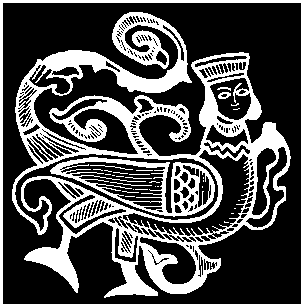As a Young Man
James Joyce
Jim Norton, Reader
(Naxos)

- The tickling of the skin of his neck made his mind raw and red. The life of his body, illclad, illfed, louseeaten, made him close his eyelids in a sudden spasm of despair: and in the darkness he saw the brittle bright bodies of lice falling from the air and turning often as they fell. Yes; and it was not darkness that fell from the air, it was brightness.
Joyce's poetry --- Pomes Penyeach --- was flaccid. His prose, on the other hand, is poetical. Throughout Portrait, there are lovely words, as in an extended narrative poem, repeated over and over:
- tundish
soutine
ashplant
eucharist
dedalus
artificier
and an especial favorite, the call from Stephen's friends, bathing in the river, his Latinate name,
-
Stephaneforos.
- And when we are married,
O, how happy we'll be,
For I love sweet Rosie O'Grady
And Rosie O'Grady loves me."
Joyce is a musician (they say he had a fine ear for Irish ballads, which he could be persuaded to sing when provoked by spirits).
Like a song, this version of Portrait can possess one. At times, we found ourselves listening to some of the disks over and over again, partially because of Norton's superb rendering. He's a man who can switch instantly between the proper English of the text, to the Gaelic-inflicted dialogue of Dublin, to the heavy voice of the old priests, to the high, light voices of the occasional woman.
In Portrait we find a man filled with profound certainties on questions of art, god, family. At the same time, Dedalus shows a heavy ambivalence over love and passion. Early on in Joyce's next novel, Ulysses, Buck Mulligan, Dedalus's friend, sings of the god the is trying to become. He does this by descending into slapstick: "his mouth open happily, his eyes, from which he had suddenly withdrawn all shrewd sense, blinking with mad gaiety. He moved a doll's head to and fro, the brims of his Panama hat quivering, and began to chant in a quiet happy foolish voice:"
- I'm the queerest young fellow that ever you heard.
My mother's a Jew, my father's a bird.
With Joseph the joiner I cannot agree,
So here's to disciples and Calvary.
"He held up a forefinger of warning.
-
If anyone thinks that I amn't divine
He'll get no free drinks when I'm making the wine
But have to drink water and wish it were plain
That I make when the wine becomes water again.
"He tugged swiftly at Stephen's ashplant in farewell and, running forward to a brow of the cliff, fluttered his hands at his sides like fins or wings of one about to rise in the air, and chanted:"
-
Goodbye, now, goodbye. Write down all I said
And tell Tom, Dick and Harry I rose from the dead.
What's bred in the bone cannot fail me to fly
And Olivet's breezy . . . Goodbye, now, goodbye.
Portrait is not only a picture of a young man going to war with his country and his religion, it is, more cunningly, the story of a man at war with himself. It is a contrary war that can fill Stephen with self-rebuke. Throughout it all, there are hints of young Dedalus's true love: the "queer" sound he hears in the word kiss; his father calling him a "bitch;" his mother saying that he always did have a "queer mind;" Cranly and Dedalus, touching blushingly on the question of love,
- "Have you ever loved anyone?"
"You mean women?"
"I am not speaking of that," Cranly said in a colder tone. "I ask if you ever felt love towards anyone or anything?"
Despite Dedalus's (and Joyce's) immersion in the theory and practice of being a powerfully committed artist, one who must famously endure "silence, exile, cunning," there is overall the portrait of a man who has been torn apart by ambivalence over his own soul, if not his own passion.
Enjoying Bird Behavior Through the Seasons
Marie Read
(Houghton Mifflin)

- Along comes the Downy Woodpecker! Tapping on the gall surface, the bird senses the subsurface tunnel and continues pecking away the woody gall tissue, finally claiming its juicy prize.
If you want a real book about our avian friends, forget this one. Try, instead The Singing Life of Birds --- The Art and Science of Listening to Birdsong --- recently out from the very same publisher, Houghton Mifflin. It's by Donald Kroodsma, and it's a song-filled sensation complete with CD of almost 100 birdsongs to cheer up your days.